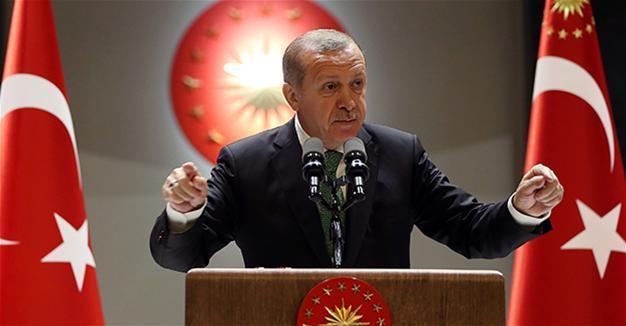Turkey part of diplomacy for Qatar crisis
DOHA / ANKARA

AA photo
A number of nations, including Turkey, have been engaged in intense diplomatic efforts to find a solution to the escalating crisis between Qatar and a group of Arab countries led by Saudi Arabia and Egypt.Turkish President Recep Tayyip Erdoğan spoke by phone with the leaders of Qatar, Russia, Kuwait and Saudi Arabia in a bid to ease the crisis, presidential sources said late on June 5.
“The importance of regional peace and stability was underlined in the talks, as well as the importance of focusing on the path of diplomacy and dialogue to lower the current tension,” they added.
The Saudi-led group cut ties with Qatar on June 5, accusing the gas-rich Gulf country of supporting extremism. Bahrain, the United Arab Emirates, Yemen and the Maldives joined the bloc in severing relations with Qatar, accusing Doha of harboring “terrorist and sectarian groups that aim to destabilize the region including the Muslim Brotherhood, Daesh [the Islamic State of Iraq and the Levant – ISIL] and al-Qaeda.”
After the talks between Erdoğan and his Russian counterpart Vladimir Putin, the Kremlin said both leaders called for “dialogue and compromise.”
“The two presidents discussed the developments around Qatar and called on all interested countries to engage in dialogue with a view to reaching a compromise for the sake of preserving peace and stability in the Persian Gulf area,” the Kremlin said in a statement.
“It was emphasized that the grave crisis in the Middle East requires well-orchestrated efforts and close coordination of the international community in fighting the terrorist threat,” it added.
The president also spoke with Saudi Arabia’s King Salman and the emirs of Qatar and Kuwait.
U.S. President Donald Trump said on June 6 that he warned against funding “radical ideology” during his trip to the Middle East and that leaders there pointed to Qatar, appearing to take credit for Arab countries’ split as his administration was trying to resolve the dispute.
“During my recent trip to the Middle East I stated that there can no longer be funding of Radical Ideology. Leaders pointed to Qatar - look!” Trump wrote on Twitter.
The United Arab Emirates said on June 6 that Qatar would need to provide a “guaranteed roadmap” before it would consider mending ties.
“We need a guaranteed roadmap to rebuild confidence after our covenants were broken,” UAE state minister for foreign affairs Anwar Gargash said on Twitter.
Gargash accused Doha of turning to “money and media and partisanship and extremism” in a series of tweets earlier in the day. Qatar has denied the allegations.
Kuwait’s Emir Sheikh Sabah al-Ahmad Al-Sabah left for Saudi Arabia on June 6 for talks aimed at resolving a diplomatic crisis between Qatar and other Arab nations.
The official KUNA news agency said the emir left for the western port city of Jeddah at the head of a high-level delegation including the foreign and information ministers.
The Kuwaiti ruler played a pivotal role in mediating a compromise in a 2014 diplomatic dispute between Saudi Arabia, Qatar and other Gulf states.
Qatar’s emir, Sheikh Tamim bin Hamad al-Thani, has delayed a speech planned for broadcast on Al-Jazeera at the request of the Kuwaiti ruler, the Qatari foreign minister said.
Saudi Arabia and Bahrain revoked the licenses of Qatar Airways and ordered its offices to close within 48 hours.
Iran’s Foreign Minister Mohammad Javad Zarif urged the parties to engage in dialogue to resolve their dispute.
France said it wanted the row to be resolved through dialogue, its foreign ministry said.
















